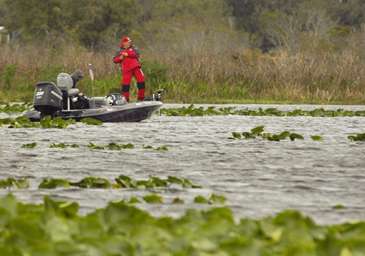
This is the first installment in a series of articles highlighting the progress and challenges of creating a long-term black bass management plan for Florida. Florida is widely recognized as the fishing capital of the world based on great resources and responsible management, which led the U.S. Fish & Wildlife Service to report that more than twice as many nonresident anglers fish in Florida compared to any other state. In addition, more International Game Fish Association records have been set here than anywhere else. In fact, it took an entire continent to finish second in IGFA records — Australia.
Largemouth bass are the most popular recreational fish species in the United States, and in Florida, black bass annually provide more than 800,000 anglers with nearly 15 million days of healthy outdoor recreation, generating substantially more than a billion dollars in economic impact for Florida. In March 2010, Bassmaster Magazine summarized the first 12 years of Lunker Club applications, noting that Florida had produced more entries than any other state (514 lunkers, or 27.2 percent of all entries).
Unfortunately, even given those facts and that Florida is the natural home to the Florida largemouth bass and other black bass species such as the Suwannee, shoal and spotted bass, some anglers believe bass fishing is better elsewhere. The Florida Fish & Wildlife Conservation Commission takes its mission of managing all Florida’s fish and wildlife resources very seriously and is constantly striving to improve. Consequently, the FWC’s Division of Freshwater Fisheries Management is undertaking to work with anglers and stakeholders to create a new long-term black bass management plan.
As a first step, the FWC reached out to anglers via bass club meetings, fishing and boating shows, the media and Internet to attain more than 5,000 preliminary survey results. Those surveys identified public concerns and possible solutions and documented the reasons why anglers go bass fishing, the constraints that prevent them from fishing more and some additional facts about their fishing behaviors and preferences.
That information was shared with a Technical Assistance Group consisting of citizen stakeholders, who represent various groups such as bass club members, fishing guides, tournament anglers, tourism groups, lure manufacturers, sports retailers, university fishery scientists and outdoor writers. They helped to organize and suggest critical action items to include in the plan along with the type of background material that should be shared with the public.
FWC staff, including fisheries biologists, habitat managers, research scientists and hatchery and law enforcement personnel, then set about creating a first draft based on input received from the public and the TAG.
The draft, along with a public-opinion survey, has now been posted on the Internet at www.MyFWC.com/BassPlan_Survey, and the FWC and TAG encouraged all anglers interested in the future of bass fishing in Florida to go online to provide their input and comments.
In future entries of this series, we’ll highlight some of the most controversial topics, share some of the pros and cons for each issue and even solicit your opinion.
